Revolutionary General Lavr Kornilov
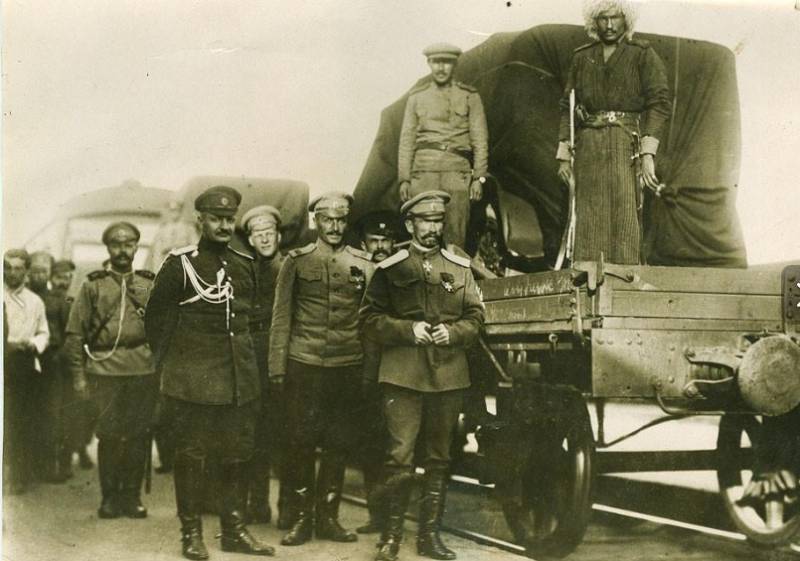
Arrival of L. Kornilov to Moscow for the State Conference
В previous article we talked about the origin, youth and military service of Lavr Georgievich Kornilov. A native of a poor, large family, he quickly moved up the ranks and deservedly became a general already at the age of 41. L. Kornilov served in Turkestan, participated in the Russo-Japanese War. During the First World War in April 1915, he was taken prisoner by Austria.
first article about Lavr Kornilov, we ended with a report on his return to his homeland. Today we will continue this story.
Return to the front
In September 1916, Lavr Kornilov received under the command of the XXV Army Corps of the Special Army of General V.I. Gurko - this is still the same Southwestern Front. And then Kornilov's name appears in Guchkov's list of "supporters of the Duma."
A. I. Guchkov, the leader of the Octobrist party, a professional adventurer who had been captured by the British during the Anglo-Boer War, and by the Japanese after Mukden, now hatched a plan to seize the royal train between Stavka and Tsarskoye Selo in order to force Nicholas II to abdicate from the throne in favor of the heir with the regency of Grand Duke Michael.
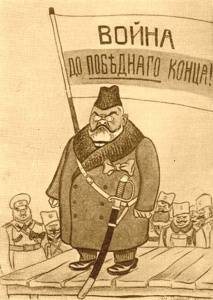
B. Efimov. 1917 caricature of A. Guchkov, Minister of War and Naval Affairs of the Provisional Government
Later, the representative of the intelligence of the French General Staff Captain de Maleici made a statement:
There were no refutations of this statement - neither immediately, nor later.
The British were well aware that Russian society was tired of the war, and they were very worried about rumors about repeated attempts by Germany and Austria-Hungary to negotiate a separate peace with Russia. An influential supporter of this peace treaty was Grigory Rasputin. As a result, he was killed by a group of high society conspirators who acted so ineptly that the curator, British intelligence officer Oswald Rainer, had to come to their aid: the historians of Foggy Albion have no doubt that it was his shot that became fatal for the old man who was trying to escape.
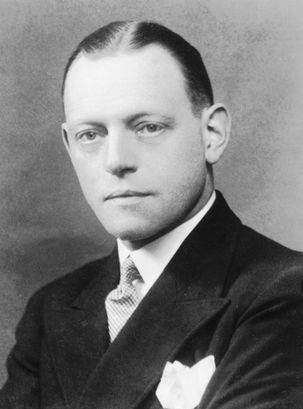
Oswald Theodore Rayner
The British were interested in Russia continuing the war, and were not at all going to make chaos in the country. The calculation was that Nicholas II, as required by law, would abdicate in favor of his son Alexei. The new emperor, until he came of age, could not renounce the throne, and it would be impossible to legally deprive him of the crown.
It can be assumed that a peaceful and civilized transfer of power was planned within the framework of one dynasty - from the extremely unpopular Nicholas II to an innocent child who has not yet stained himself in the eyes of society, against whom it is somehow inconvenient to rebel. Alexei's own uncle, Grand Duke Mikhail, was to become regent, an unambitious, weak-willed man and, as the British believed, easily controlled.
However, all the cards were confused by Nicholas II, who abdicated at the same time for his son. Michael, in the face of growing unrest, chickened out - he refused to take the throne.
As a result, a self-proclaimed Provisional Government, consisting of incompetent and irresponsible talkers of the State Duma, came to power in the country. That is, no one formally overthrew the Romanov dynasty - the monarchy in Russia simply died out because of the stupidity of the last emperor and the cowardice of the heir appointed by him.
Vera Alexandrovna Guchkova
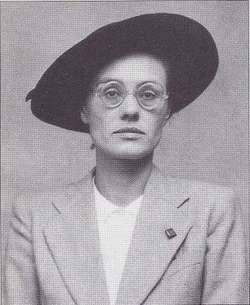
You will probably be interested to know that the only daughter of A. Guchkov, Vera (born in 1906), became a communist and an employee of the NKVD. In 1919, her parents took her away from Russia. In 1926, in Paris, she met Marina Tsvetaeva, who addressed her in one of the surviving (in drafts of the poetess) letters:
In 1930, Vera joined the French Communist Party. In 1936 she came to the USSR, where she taught foreign languages at a intelligence school near Moscow. In 1937, "on the instructions of the party," she married the Scottish communist Robert Trail (this was her second marriage), from him she gave birth to her only daughter. The husband soon died fighting for the Republicans in Spain.
The all-powerful head of the NKVD, Nikolai Yezhov, treated Vera Guchkova with great sympathy, in whose office she once started a scandal, demanding the release of her arrested friends. They didn’t touch her with a finger, but they sent her to France - as an agent of the INO OGPU. Vera herself later recalled it this way:
After the outbreak of World War II, she ended up in a concentration camp, but fled to Portugal, in 1941 she settled in London. Later, Vera left the Communist Party and even criticized the Soviet Union and Stalin, but some researchers believe that her activities were coordinated with the KGB.
In the 60s, she repeatedly visited the USSR as an interpreter for various British delegations. She was well acquainted with Svetlana Alliluyeva, with whom she quarreled after the publication of her book Twenty Letters to a Friend.
Vera Guchkova died in Cambridge in 1987. The dossier with her case is still kept in the archives of the FSB marked "Top Secret".
But let us return to her father, to Lavr Kornilov and to the events of 1917.
On the eve
Generals M. Alekseev and N. Ruzskoy, who participated in the Guchkov conspiracy, tried to persuade Nicholas II to change the commander of the Georgievsky battalion, appointing Kornilov in his place, and then completely recommended him to the post of head of the Petrograd military district. The tsarist government and Nicholas II himself at that time were already rapidly losing the remnants of authority. The jingoistic and capricious moods of the beginning of this war had long since passed, and disappointment was growing in society.
The inability of the government to solve pressing issues became obvious. On November 1 (14), 1916, Pavel Milyukov, the leader of the Kadet Party, delivered the famous anti-government speech in the State Duma, which was included in history titled "Stupidity or Treason".
At the beginning of 1917, at a private meeting of trade and industry figures, P. Ryabushinsky (a descendant of the peasants of the Borovsko-Pafnutevsky monastery, a member of the State Council, the All-Russian Union of Trade and Industry, one of the leaders of the Progressive Party) stated:
Growing social inequality. While the main sections of the population were "tightening their belts", the "patriotic" bankers, manufacturers and speculators of all stripes were fattening. Even the chairman of the State Duma, M. V. Rodzianko, who took a contract for the production of birch stocks for rifles, did not hesitate to receive a ruble apiece from the military ministry.
Nicholas II was also unpopular in the army. Denikin recalled that one of the Socialist Duma deputies, during a trip to the front, was so struck by the freedom with which officers in canteens and clubs spoke of "the vile activities of the government and debauchery at court" that he decided that they wanted to provoke him.
In early January 1917, General A. Krymov, at a meeting with Duma deputies, proposed sending the Empress to one of the monasteries and conveyed to them the words of Brusilov:
Members of the imperial family also dreamed of getting rid of Nicholas II and especially his wife. In January 1917, Grand Duchess Maria Pavlovna, who headed the Imperial Academy of Arts, spoke about this to Rodzianko.
February revolution
On February 23 (March 8, according to the new style), a women's demonstration was held in Petrograd, supported by many factories in Petrograd. It was the beginning of the February Revolution. The Putilov factory went on strike on February 18, and on the 25th the strike became general. From that day on, the protesters began to put forward political demands. At the same time, the Council of Soldiers' and Workers' Deputies was created, and Empress Alexandra Feodorovna wrote to Nicholas II that hooligan antics of young people were taking place in the capital, and that if the weather were colder, everyone would sit at home.
Even on February 26, the city authorities informed the Headquarters that vigorous measures were being taken to suppress the uprising, but at the same time they demanded that additional reliable units be sent from the front.
On February 26–27, soldiers began to cross over to the side of the demonstrators, and the first skirmishes with the police were noted. On February 27-28, the entire capital's garrison, about 200 thousand soldiers, already went over to the side of the revolution.
On February 27, Chief Prosecutor N.P. Raev proposed to the Synod to condemn the revolutionary movement - and received the answer: it is still unknown where the treason comes from. On this day, the Provisional Committee of the State Duma was created, and Nicholas II left Headquarters. Before that, he appointed General Ivanov as dictator of Petrograd, but he did not reach the capital: all the troops attached to him went over to the side of the revolution, including the battalion of the Knights of St. George.
On March 1, the Provisional Government was already in operation, taking power before the Constituent Assembly.
And what about the emperor?
In Pskov, his train was detained by the commander of the Northern Front, General Ruzsky. The emperor sent a telegram on the appointment of a government responsible to society, headed by Rodzianko - and received an answer that this was no longer enough. All the front commanders interviewed by telegraph, including the tsar's uncle Nikolai Nikolaevich, spoke in favor of the emperor's abdication (only the commander of the Black Sea fleet Admiral Kolchak abstained). Ruzsky said:
On March 2, Nicholas II signed the act of renunciation - for himself and for his son. And on March 3, his younger brother Michael also renounced the throne.
On March 4, 1917, in response to the granting of "freedom from the pernicious guardianship of the state," the members of the Synod expressed "sincere joy at the dawn of a new era in the life of the Church."
On March 6, 1917, the chairman of the Synod, Metropolitan Vladimir, sent out an order to the dioceses that prayers should be offered for the God-protected Russian state and the faithful Provisional Government.
On March 9, 1917, the Synod issued an appeal to the people:
But what does the hero of our article do at this time? Lavr Kornilov said then:
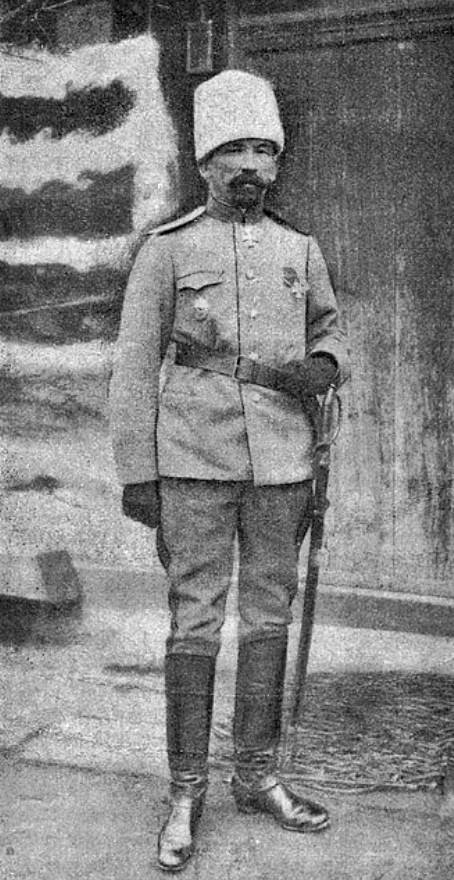
General Lavr Kornilov in 1917
After the abdication of the emperor, it was Kornilov who, in the presence of Guchkov, arrested the family of Nicholas II in Tsarskoe Selo - his wife Alexandra Feodorovna and children. Then, on the orders of Kornilov, the body of Grigory Rasputin was burned at the Piskarevsky cemetery.
In March 1917, at the first meeting of the Provisional Government, L. Kornilov was appointed Commander-in-Chief of the Petrograd Military District.
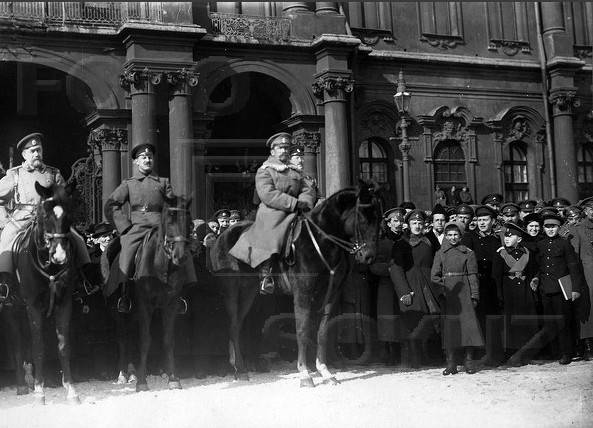
Commander of the Petrograd Military District L. Kornilov takes the parade of cadets.
And on April 6, he personally presented the St. George Cross to sergeant major T. I. Kirpichnikov, who in February was one of the active organizers of the rebellion in the Volyn Guards regiment and shot dead the captain I. S. Lashkevich, who was trying to stop the soldier.
Having familiarized himself with the situation in Petrograd, Kornilov then came to the conclusion that out of more than 200 troops stationed in the capital, he could unconditionally rely on only 14 soldiers and cadets.
Return to the front
At the end of April 1917, Kornilov had already become disillusioned with the talkers "February" and, in protest against the destruction of the army, resigned from the post of commander-in-chief of the Petrograd district. He was again sent to the Southwestern Front - the commander of the Eighth Army. Here Kornilov was horrified by the new order and demanded the dissolution of the soldiers' committees, as well as a ban on political agitation. On his recommendation, the Provisional Government restored the death penalty at the front.
On June 18, 1917, the Russian army launched the last offensive of the First World War. On paper, it was well prepared, and in some areas the advancing Russian units outnumbered the enemy twice. The main blow in the direction of Lvov was delivered by the 7th and 11th armies, which achieved some success, but by June 20 their movement practically stopped due to the elementary unwillingness of the soldiers to go into battle.
By the way, State Duma deputy General Viktor Sobolev made a statement in May 2023 that in September 2022 the Russian military had to retreat from the Kharkiv region, because the contract servicemen of the Ministry of Defense of the Russian Federation left their positions, writing dismissal reports:
Very unpleasant associations, isn't it?
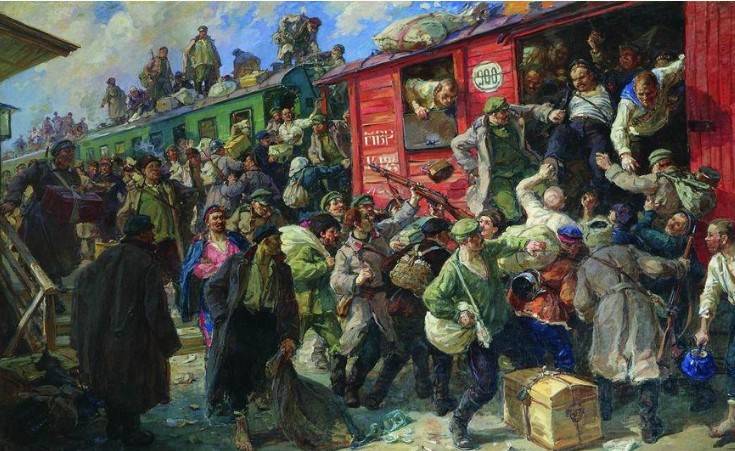
G. Savitsky. "The spontaneous demobilization of the tsarist army in 1917". Painting 1928
But let's go back to June 1917: on the 25th, Kornilov's 8th Army entered the battle, ahead of them were the "shock detachments" formed by Kornilov from volunteers.
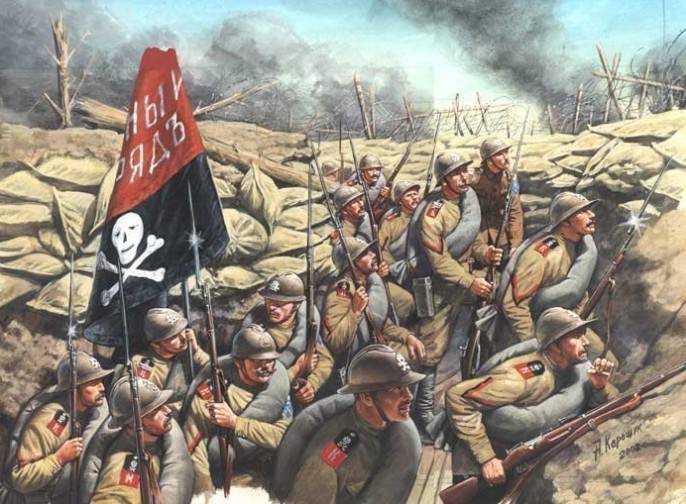
A. Karashchuk. "Shock Kornilov units"
In a two-day battle on June 26-27, these troops managed to defeat parts of the 7th Austro-Hungarian army and take Galich, and on June 28 Kalush. However, the losses were too great, and among the most reliable and loyal units, the soldiers of other formations simply sabotaged orders and, despite all the efforts of Kornilov, discipline was rapidly falling.
As a result, the counterattack of the Austrian and German divisions led to the actual flight of the Russian units, which left the entire previously occupied territory of Austria-Hungary. The offensive attempts on the Western, Northern and Romanian fronts did not bring much success either.
The failure of the June offensive heated up the situation in Petrograd, where there was a huge number of troops, whose soldiers categorically did not want to go to the front. The slogan put forward by Lenin about an immediate peace without annexations and indemnities became incredibly popular.
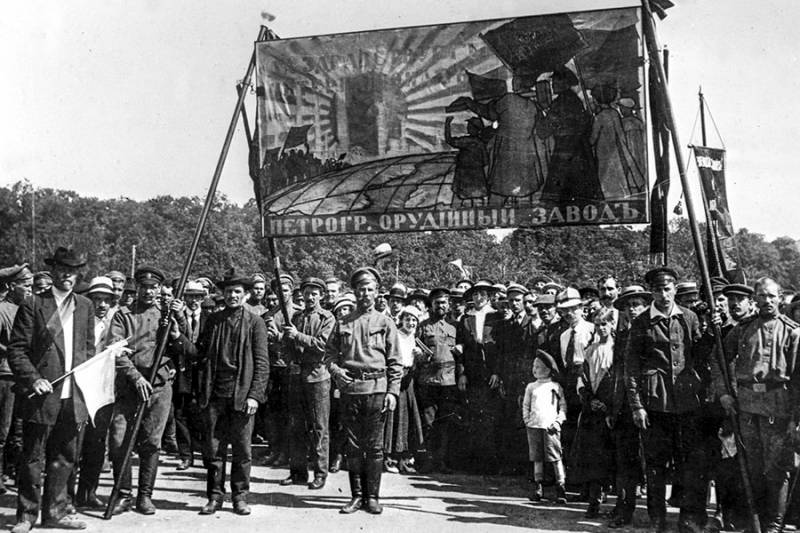
Petrograd, July 4, 1917
On July 3-5 (16-18), 1917, mass anti-government demonstrations took place in Petrograd, ending with the shooting of a half-million demonstration, the disarmament of workers' detachments, and the banning of Bolshevik newspapers. An order was issued for the arrest of Lenin, Trotsky, Kamenev, Lunacharsky and other leaders of the Bolshevik Party.
The peak of his career was reached by Kerensky, who became chairman of the cabinet of ministers, retaining the post of military and naval minister. Kornilov received the rank of General of Infantry and on July 8 (21) on the recommendation of Filonenko and Savinkov (a former terrorist, head of the Social Revolutionary Combat Organization, and at that time a commissar of the Provisional Government, in the future - deputy minister of war) was appointed commander of the Southwestern Front. Already on July 18 (31) Kornilov became the Supreme Commander-in-Chief, replacing Brusilov in this post. The situation, you see, is atypical: the future candidate for the post of dictator rises not thanks to victories, but after a serious defeat.
Supreme Commander
Alexander Kerensky, whom some compared to Khlestakov, who happened to be on the throne, was incredibly ambitious and extremely afraid of losing the post of head of state. Dangers seemed to him both on the left and on the right. And because of this, he was extremely suspicious of the new Supreme Commander, immediately entering into a confrontation with him.
Kornilov demanded measures to restore order both at the front and in the rear, Kerensky perceived these appeals as a desire to push him into the background, and complained:
He later reported to the commission of inquiry in the Kornilov case:
On August 3 (16), 1917, Kerensky and Kornilov met in Petrograd, which in no way contributed to reconciliation. Leon Trotsky ironically wrote about the meeting between the head of the Russian government and the commander in chief:
From 12 to 15 (25–28) August, the State Conference was held in Moscow, at which L. Kornilov “shone” and reveled in glory.
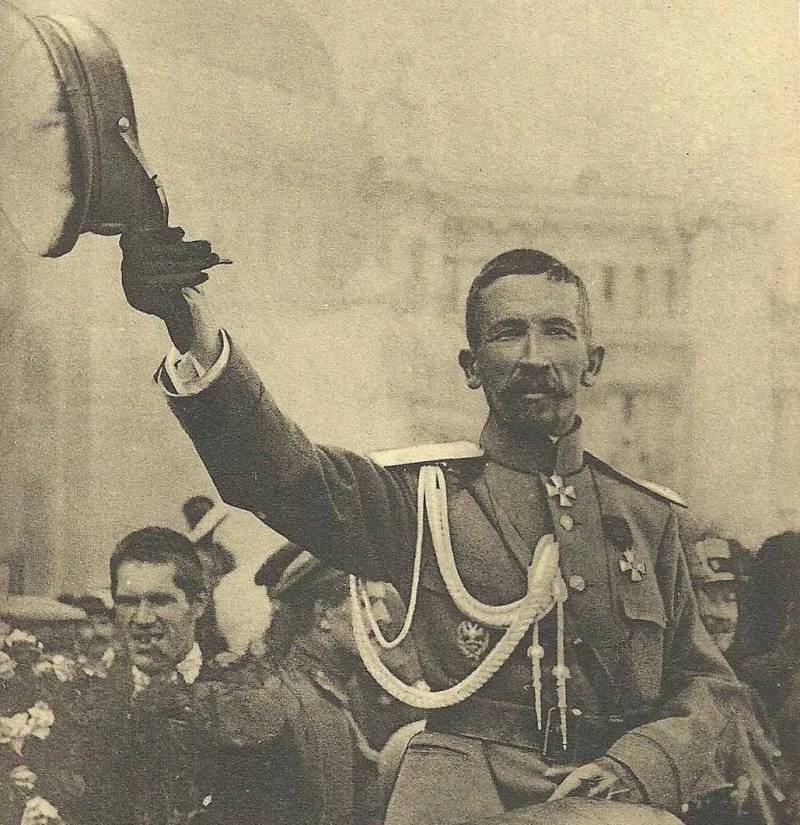
General Kornilov on his way to the Moscow State Conference
M. Sholokhov in the novel "Quiet Don" describes the appearance of Kornilov as follows:
L. Trotsky wrote:
The photo below is captioned: “Arrival at the State Conference in Moscow of its main actors: Kornilov and Kerensky”:
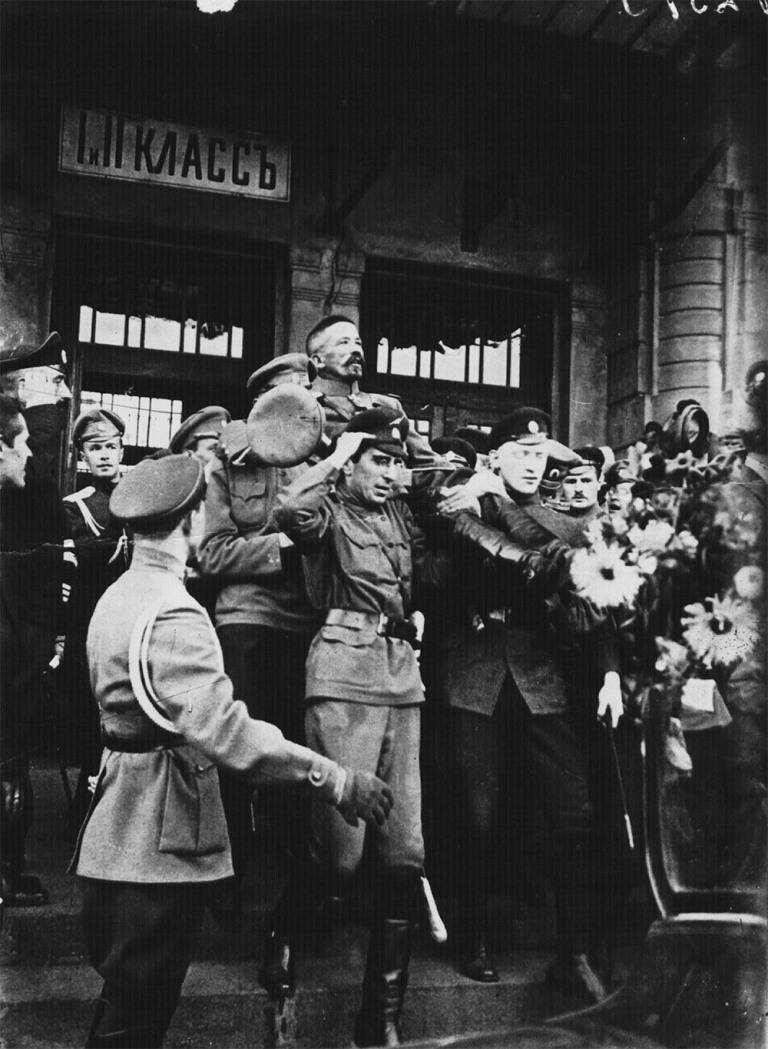
Member of the Cadet Party F. Rodichev addressed the general with the words:
It is not surprising that Kornilov then literally felt dizzy, and it began to seem to him that the impossible was no longer possible: if he sent troops to Petrograd, he would be met not with shells and bullets, but with shouts of “Hurrah” and flowers.
Exactly the same thoughts, apparently, were in the head of E. Prigozhin, diligently pouring condensed milk and chocolate on sofa patriots of the Internet, when he made the fatal decision to send his private army to Moscow.
Progressive P. Ryabushinsky, mentioned above, also actively supported Kornilov, who called for strangling the revolution with the “bony hand of hunger.”
Vasily Maklakov, an influential member of the Constitutional Democrats, turned out to be smarter and more insightful when he told Leonid Novosiltsev, chairman of the Main Committee of the Union of Officers:
That's how it all happened.
Before the start of the march of the Kornilov units on the capital, recently parodied by E. Prigogine, there were only a few days left. But we will talk about this in the next article.
Information